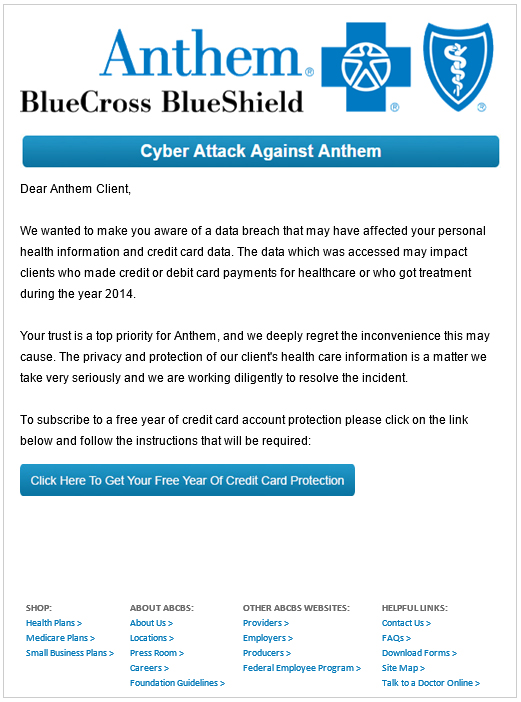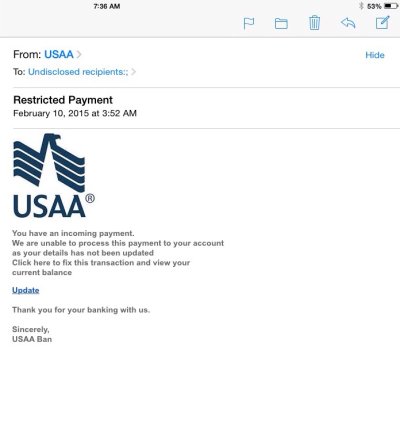audreyh1
Give me a museum and I'll fill it. (Picasso) Give me a forum ...
Someone I know got an interesting phishing email today from the "IRS" announcing that they had a new IP PIN to use for e-filing their 2014 return. File attached.
Subject: Your 2014 electronic IP PIN!
From http://www.irs.gov/uac/Report-Phishing
It's worth reviewing the IRS website because it also discusses phone scams.
Subject: Your 2014 electronic IP PIN!
Dear member
This is to inform you that our system has generated your new secure electronic PIN to e-File your 2014 tax return.
Please kindly download the Microsoft file to securely review it.
Thanks
Internal Revenue Service
<address given>
From http://www.irs.gov/uac/Report-Phishing
The IRS doesn't initiate contact with taxpayers by email, text messages or social media channels to request personal or financial information. This includes requests for PIN numbers, passwords or similar access information for credit cards, banks or other financial accounts.
It's worth reviewing the IRS website because it also discusses phone scams.
Last edited:



